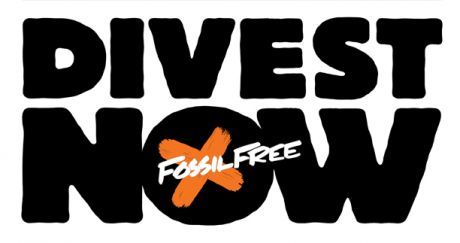News
You are here
Fossil fuel divestment campaigns growing

March 3, 2014
Students at hundreds of Canadian and American universities have started fossil fuel divestment campaigns, demanding their universities divest from companies with holdings in coal, oil and gas reserves.
Divestment means getting rid of stocks, bonds and investment funds that are unethical or morally ambiguous. As fossil fuels are a direct cause of environmental destruction in both their extraction and burning, they are damaging the health of humanity and the planet.
These campaigns follow the model of the anti-apartheid divestment campaigns of the 1980s, the tobacco divestment campaigns of the 1990s, and the current boycott, divestment and sanctions (BDS) campaign to pressure Israel to end the occupation and colonization of Arab land.
Campaign
The fossil fuel divestment campaigns are based on current climate science that says in order to limit global temperature increase to 2 degrees Celsius approximately two-thirds of fossil fuel assets must remain in the ground.
The movement has three demands on the approximately 200 publically traded companies holding the majority of fossil fuel reserves (which in 2012 spend over $500 billion searching for fossil fuel reserves): to immediately stop exploring new hydrocarbons, stop lobbying governments to preserve special considerations, and to pledge to keep 80 per cent of current reserves underground forever.
Websites like gofossilfree.org show divestment campaigns on over 400 university campuses worldwide. According to a January New York Times article the divestment campaigns have seen numerous successes in the US as 17 foundations, “22 cities, two counties, 20 religious organizations, nine colleges and universities and six other institutions have signed up to rid themselves of investments in fossil fuel companies” to date.
According to Fossil Free Canada there are active campaigns to get Canadian universities and colleges to divest from fossil fuel companies including at McMaster, SFU, UBC, UVic, Lakehead, Laurentian, the University of New Brunswick, U of T, the University of Ottawa, Langara College and McGill.
Reforms and revolution
These campaigns are an excellent way to get more people involved in the climate justice movement, to publicize the need to shut down the fossil fuel industry and to discuss alternatives.
Today the technology, knowledge and will of the people exist to implement policies that can lead us on the path towards minimizing environmental damage. However, these policies would challenge the profits, wealth and position of the ruling class. This is why a campaign that calls for government spending on climate jobs which can reach out to working people, including those in the fossil fuel industry, is a must.
Politicians have always put the interests of big business before action that would reduce environmental damage, and will continue to do so unless we stop them. As we build the divestment campaigns we must continue to build the broader campaign for climate justice, that is, a campaign uniting the 99% in favour of eliminating the fossil fuels industry and spending the billions of dollars of public money necessary to build renewable alternatives.
These campaigns can be incorporated as part of a wider struggle against climate change with even more radical demands. The roots of the current climate crisis lie within the capitalism system driven by growth and profit, true solutions can only lie with the elimination of this system. There must be debate on how we can organize the world in a different way and use its resources rationally. We must fight to create a truly sustainable society that will preserve the planet, not destroy it.
Section:










